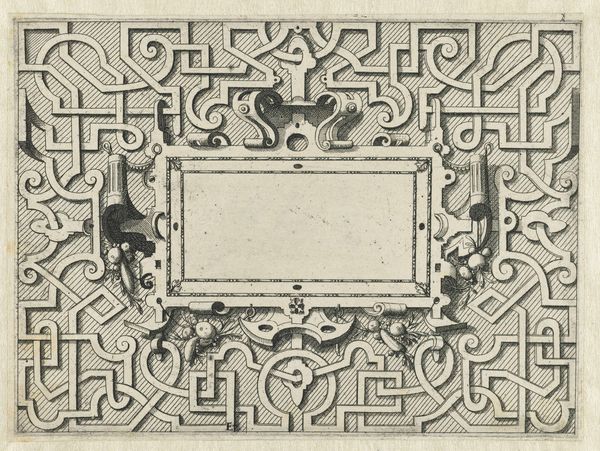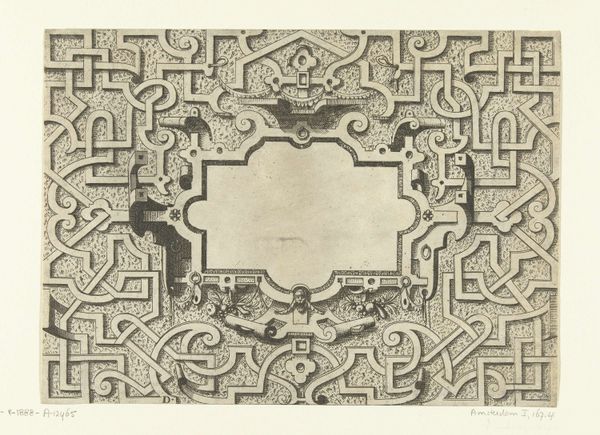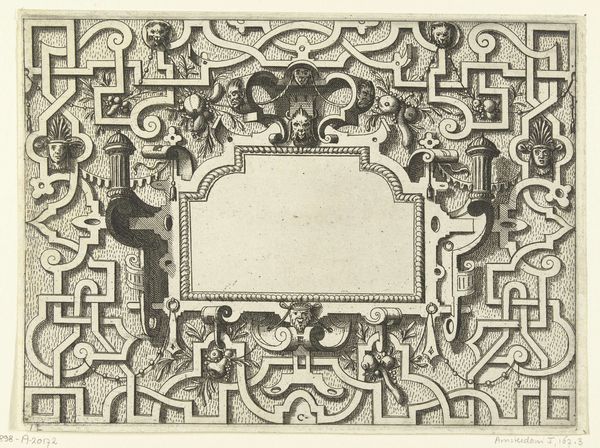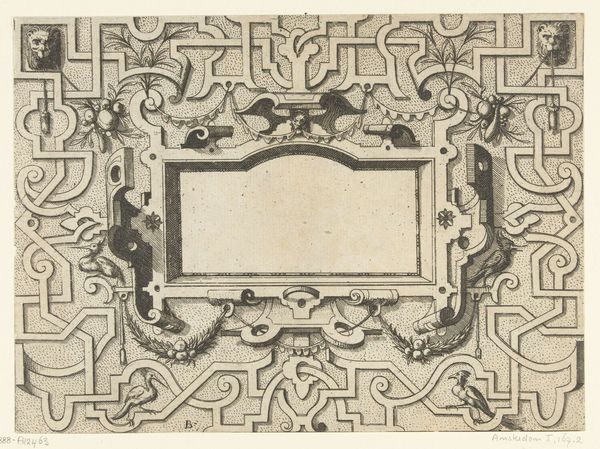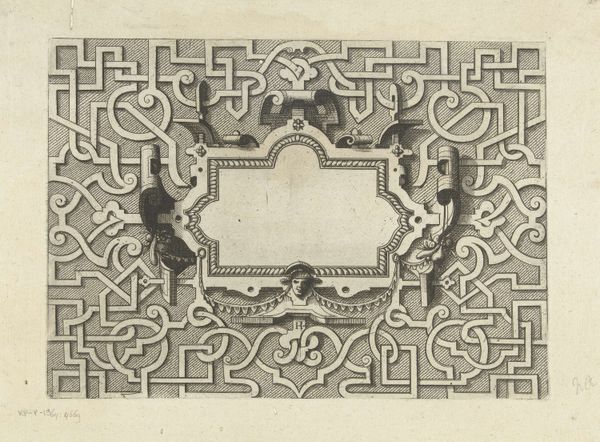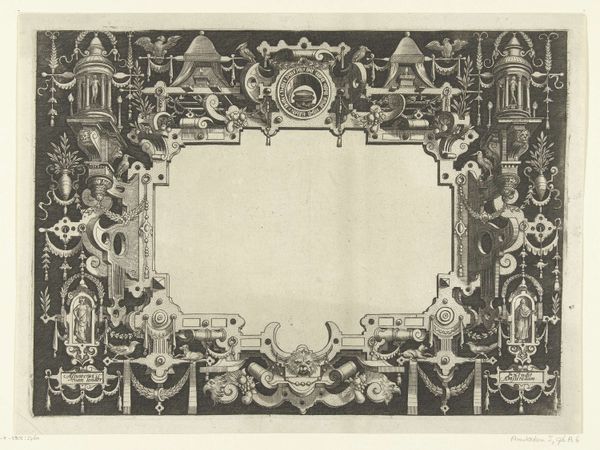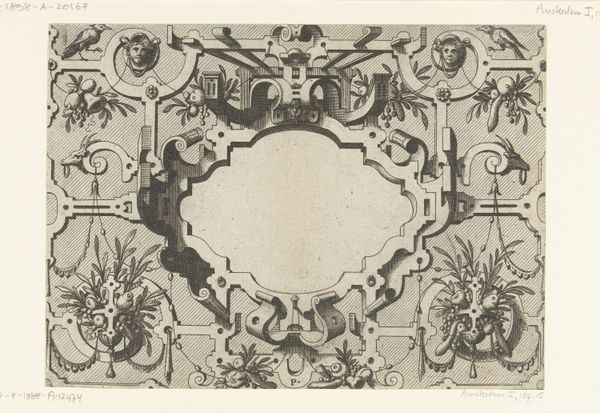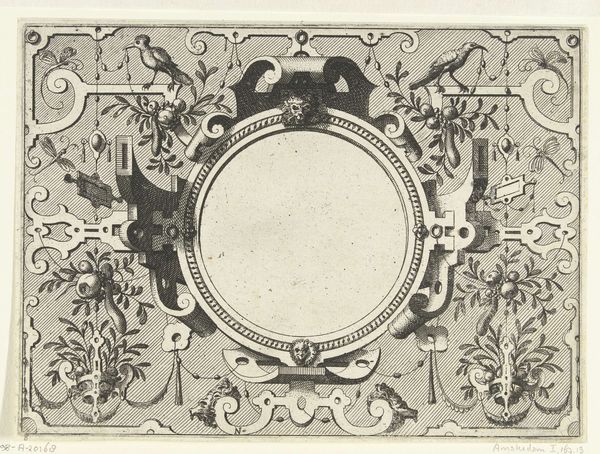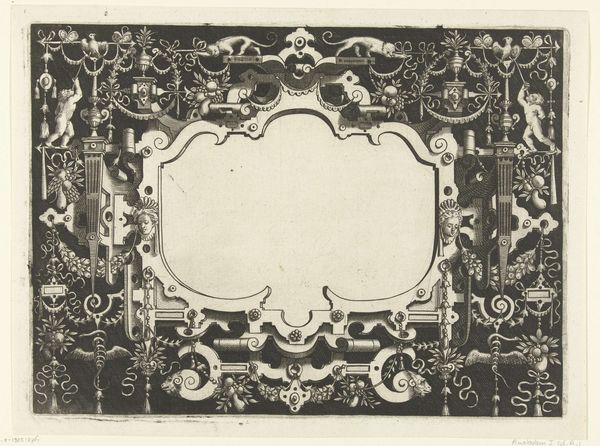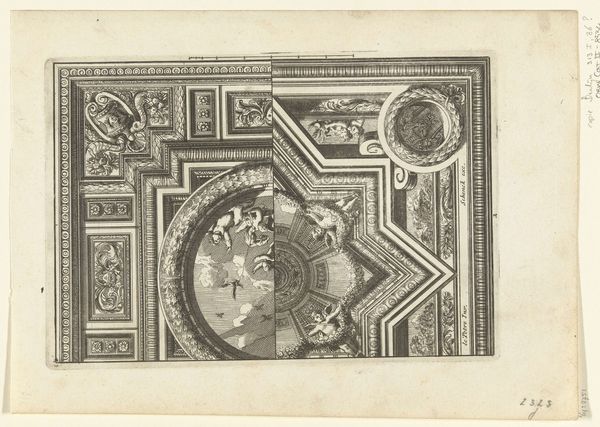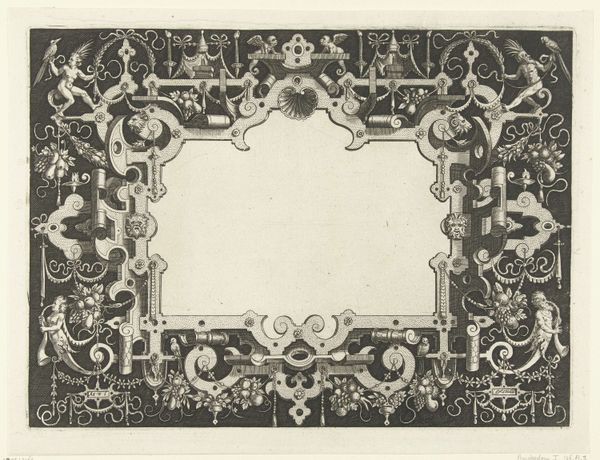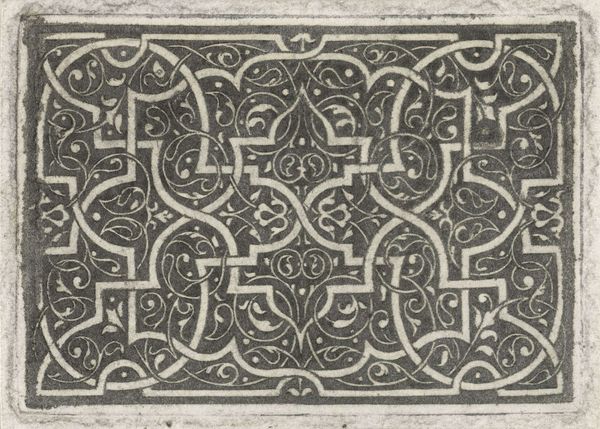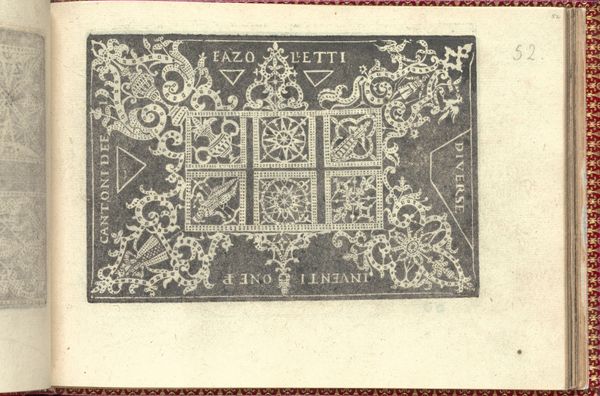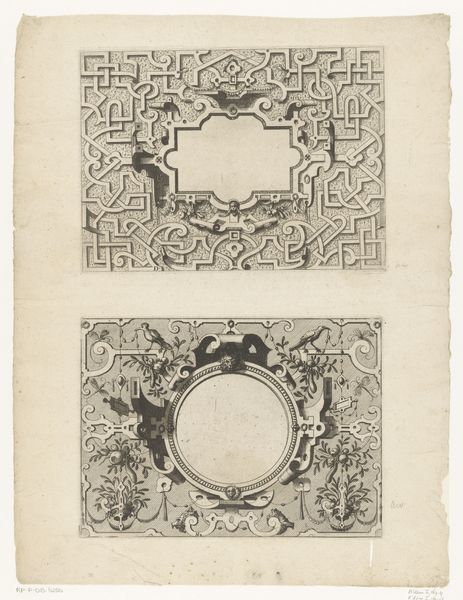
Ovale cartouche met een koordrand, omgeven door moresken c. 1555 - 1560
0:00
0:00
johannesoflucasvandoetechum
Rijksmuseum
#
pencil drawn
#
rippled sketch texture
#
light pencil work
#
pen drawing
#
pen sketch
#
old engraving style
#
pen-ink sketch
#
pen work
#
sketchbook drawing
#
coloring book page
Dimensions: height 154 mm, width 210 mm
Copyright: Rijks Museum: Open Domain
Editor: We are looking at "Ovale cartouche met een koordrand, omgeven door moresken," from around 1555-1560, made by Johannes or Lucas van Doetechum. It's currently housed at the Rijksmuseum. I'm immediately drawn to the intricate detail. What statements about the elite, their patronage, or their worldview were these images designed to convey? Curator: That's a great starting point. Considering this piece was created during the rise of elaborate ornament prints, think about how this design functions within its social and historical moment. These cartouches, filled with moresques, weren't merely decorative. What power structures do you think they might have been reinforcing or challenging? Editor: Well, given the time period and the meticulous craftsmanship, I’d assume it reinforces the wealth and power of the elite. Maybe it's even intended to show the skill of the artist themselves. Curator: Exactly. These images were often commissioned as displays of status and taste. But let’s dig deeper. What happens if we view it through a lens of cultural exchange? Moresques, as you know, have roots in Islamic art. Editor: So, the appropriation and integration of these designs could be seen as a demonstration of cultural dominance? It is selecting elements and stripping them of their original meaning? Curator: Precisely! And how might that be interpreted within the broader context of European expansionism during that era? It's not just about aesthetic appreciation; it’s also about power dynamics. Think about who had access to such imagery and what messages were being subtly communicated. Editor: I hadn't considered the power dynamics so explicitly. I guess it reveals how art and design can both reflect and perpetuate societal inequalities. Thanks! Curator: And that's why context is so critical. There is always another viewpoint to find.
Comments
No comments
Be the first to comment and join the conversation on the ultimate creative platform.
